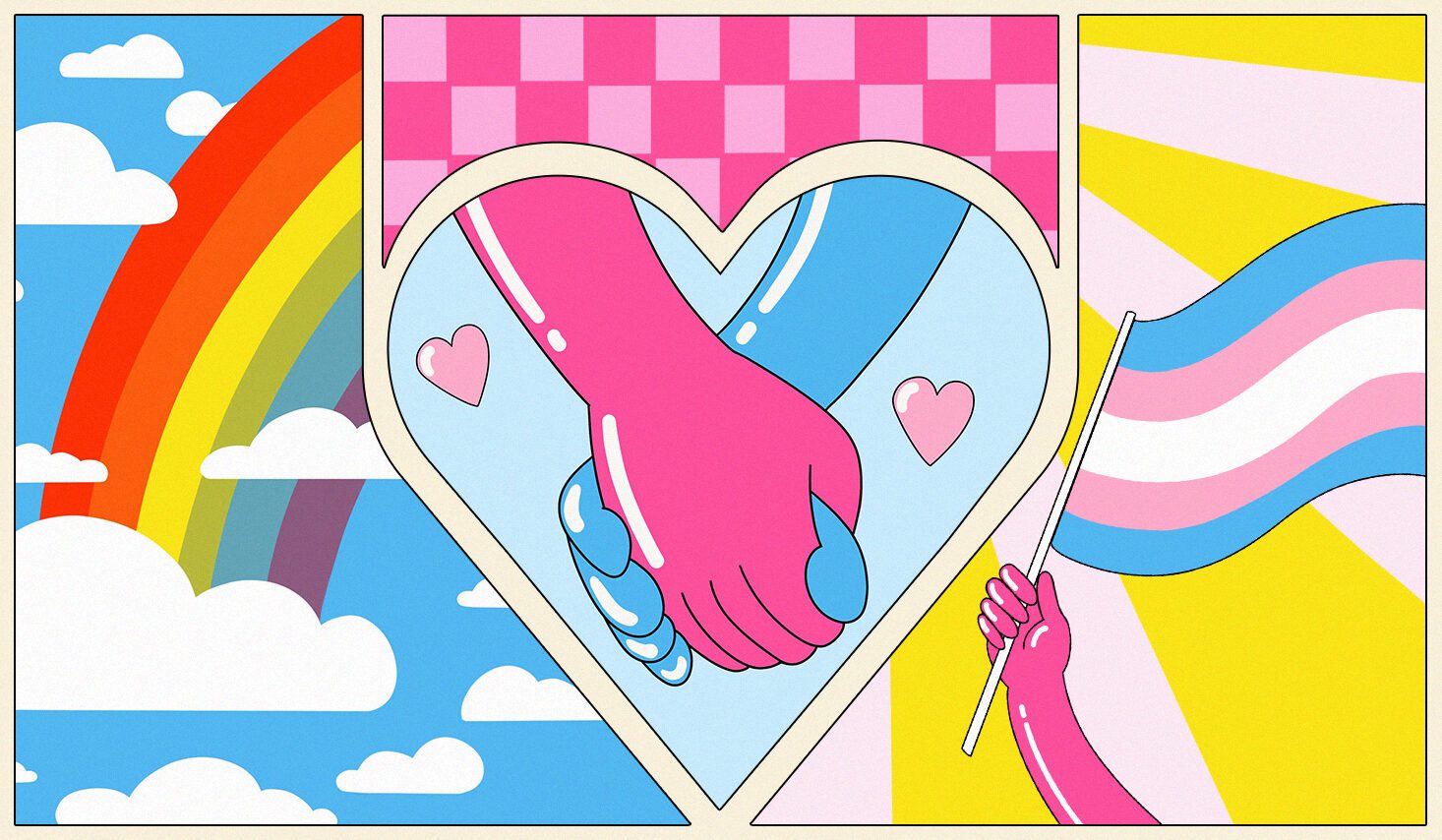
Each year on 31 March, International Transgender Day of Visibility marks a global initiative to celebrate, lift up, and spotlight the lives of transgender and gender non-conforming people, while raising awareness about discrimination against the community worldwide.
The day was conceived in 2009 by US-based transgender activist Rachel Crandall Crocker, a licensed psychotherapist specialising in transgender issues and executive director of the Transgender Michigan helpline. In addition to encouraging public ally support, the day serves as an opportunity to bring trans people from around the world together.
As such, International Transgender Day of Visibility celebrates the power and joyfulness that comes with expressing your authentic self. What’s more, visibility can and should take many different forms. It’s why GAY TIMES and Hinge have partnered with educator and activist Cole J Daniel to provide insight and advice for a Not-so Frequently Asked Question (NFAQ) around dating and relationships as a trans person.
“Trans love and joy are essential to the well-being of trans people. In a world that often tells us we are not worthy of love or happiness, finding joy in our lives is an act of radical authenticity and unconditional self-love. Our love and joy help realise the vision for a world where all people are free to grow up to become who they’re destined to be and are celebrated for being who they are,” says Moe Ari Brown, Hinge’s Love and Connection Expert and a licensed marriage and family therapist.
We know from Hinge’s LGBTQIA+ dating report that trans people are a communicative bunch, with 71% of trans daters being explicit about the type of relationship they want before the first date.
Being forthright about your dating needs and wants as a trans person makes sense. Queer people have no control over how people may or may not respond to us. This is particularly true for trans and gender non-conforming people, who may encounter misconceptions or assumptions about their identities, gender expression, and sexual expression.
Still, being communicative does not mean that trans daters have all the answers, especially given the intersection of identities that trans people have. One question arose from the community around sexuality: I have feelings for someone who’s trans. Does that change my sexual orientation?
@gaytimes Celebrate #TransDayofVisibility with @Hinge 🖤 #NFAQ ♬ original sound – GAY TIMES
“Having feelings for someone trans does not inherently change your sexual orientation. An attraction to someone, regardless of gender identity, can provide information about who you find appealing, but it doesn’t determine who you are,” says Cole. “As long as you feel comfortable with your sexual orientation, who you’re attracted to does not change that.”
Cole also points out, the belief that attraction to a trans person makes a heterosexual person homosexual is not only incorrect but it’s also inherently transphobic as it dismisses a trans person’s gender identity.
“The reason why the answer to the question can change depending on who you’re speaking to is because, for non-binary people, trans men and trans women, our gender identity is a very individual experience,” says Cole.
“The best thing you could do,” they add, “is speak to that trans person you have feelings for. That way they can give you answers that are specific to them and their gender identity.”
With International Transgender Day of Visibility being a day to express how trans and gender non-conforming people can live authentic and joyful lives, it’s important to have support on the journey. If you have a Not-so Frequently Asked Question around self-discovery and creating a meaningful connection, leave it as a comment in the TikTok for Cole.
80% of LGBTQIA+ daters on Hinge have struggled to find answers to their questions about relationships, self-discovery, gender, and sexuality. See what other inspiring voices like Cole have had to say at hinge.nfaq.co and submit your own.

